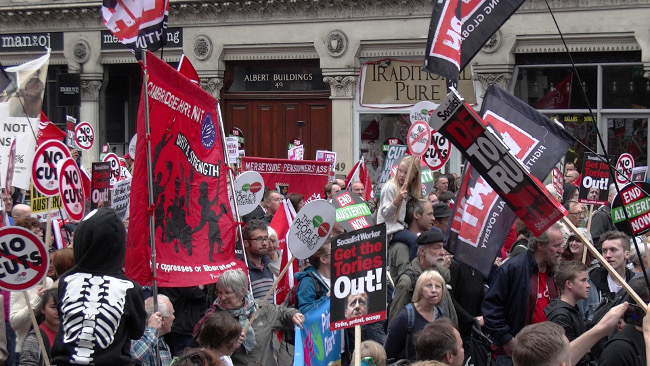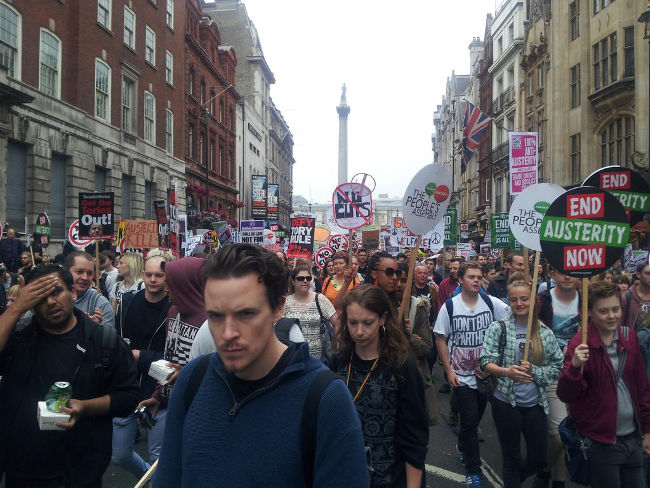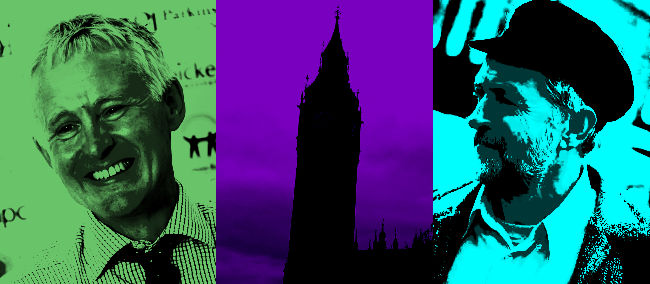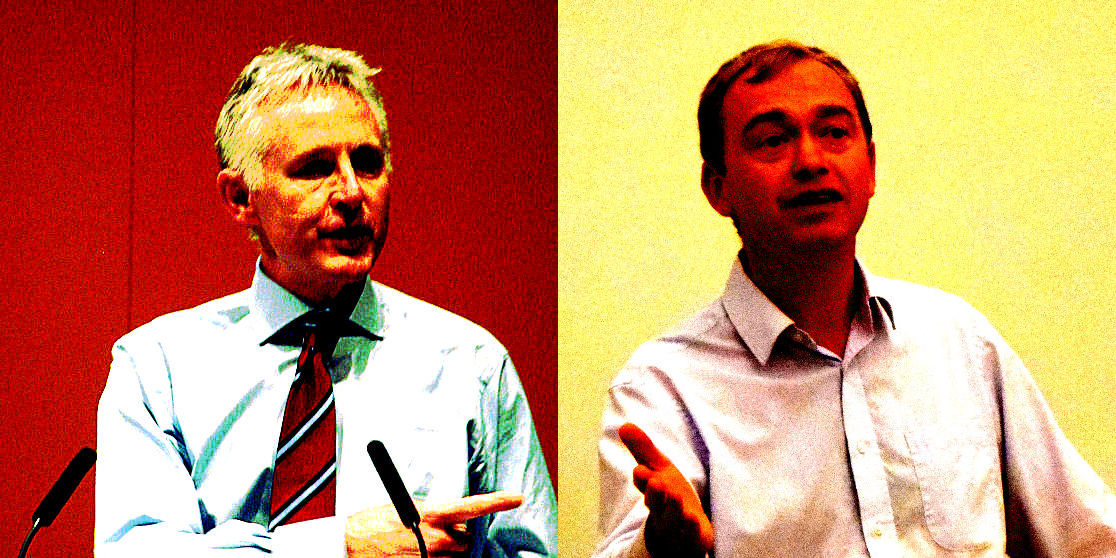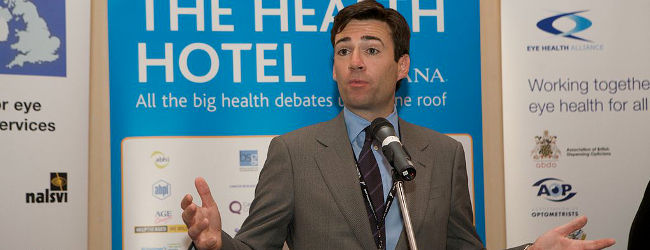Outside of King’s College’s Strand building a crooner had dressed himself in black tie and put on a badly made mask of Iain Duncan Smith, work and pensions secretary in the government for the last five years. Out of a speaker sat next to him a cover of Frank Sinatra’s Mr Success bellowed, albeit with some minor alterations: “Screw the poor, no redress/ That’s why I’m Mr Success!”
It’s a song that captures the mindset of the fringe left that has been bad tampered since the Tories were re-enthroned with their first majority in the Commons for some twenty years. The day after the election a crowd assembled outside of Downing Street, angry that their enemy David Cameron would enjoy a few more years as prime minister, leading to the phrase “Fuck Tory scum” being scrawled on a nearby war memorial.
On Saturday June 20th, with IDS crooning merrily, a similar crowd trooped from the Bank of England on Threadneedle Street past Fleet Street and onto on the lawns of Parliament Square – a neat tour of the homes of finance, journalism, and politics, which have all felt the ire of those marginalised in the current Westminster system.
Standing outside a pub near Mansion House Michael Wright, a Socialist Party member, tried to keep his cigarette alight as he spoke to The Right Dishonourable about that election result. “I think it’s pretty clear there’s a total democratic deficit in this country,” he said, citing the fact the Tories claimed a majority on a mere quarter of registered electorate’s votes.
Why even that many voted for austerity policies is pinned on a number of demons by the fringe left, including the media and Ed Miliband’s Labour party, which was poorly represented among the protestors’ banners despite London mayoral hopeful Diane Abbott turning up to a mini-rally near the start of the march.
“The media don’t report how much hostility there is to austerity,” said Huw, an unaffiliated protestor who had travelled in from Bath. “Labour doesn’t do a very good job of making the argument against austerity,” he said, a policy he dismissed as “junk economics”.
The view that cutting public spending is damaging to growth has been widely expressed since the chancellor George Osborne first started to focus the public’s mind on deficit reduction in the wake of the financial crisis. As the Oxford economic professor Simon Wren-Lewis put it, Labour “spends too much time listening to people in the Westminster bubble and fails to spend time thinking about basic electoral strategy.”
The reason he makes this argument is that public’s support for austerity is hardly unanimous. In March of this year a survey by ComRes found that only a third wanted to maintain or increase spending cuts to close the deficit. The two-thirds that disagreed with this must have comprised many of those who did not vote for the Tories at the election.
Among them was Jean, a worker from a community health trust who came down to protest over disgust at the way cuts have affected the NHS. “I have seen the damage that’s been do to the service and the staff as individuals,” she said. “Services are getting worse, but they think they should run it like a business.”
A number of those that The Right Dishonourable spoke to at the march noted the varying fortunes of this loose band of protest groups over the last few years. The viciousness of some of these groups has already drawn negative publicity, and is not approved of by many at the march. “Privately, I think David Cameron’s a wanker,” one man admitted as the protest readied itself to set off. “But I wouldn’t put that on a banner.”
But other than show there anger at marches like this, it seems there’s little the anti-austerity crowd can do. With a fresh, if slender, mandate the Tories will surely argue that they have earnt their chance to alter the country more to their liking. And with up to five years to keep the momentum of the marches going, it’s going to be a long walk for the fringe left.
Header Image – End Austerity Now, 20 June 2015
